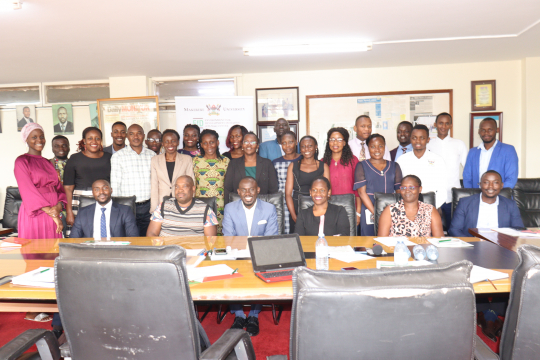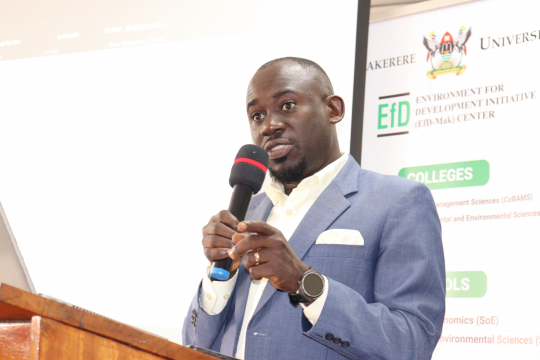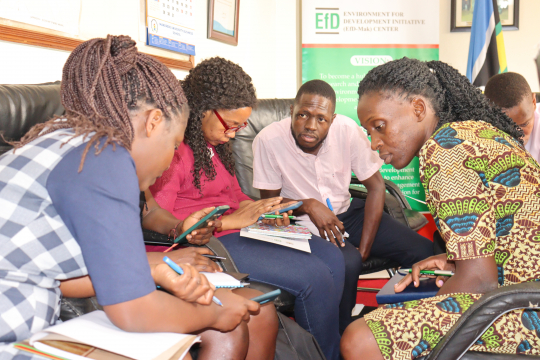Environmental economists from Makerere University have called on urban authorities to harness the abundant human and organic waste in the cities to produce biogas and organic fertilizers. They argue that while urbanization is a key driver of growth, unplanned, rapid urbanization and urban sprawl threaten to increase greenhouse emissions and vulnerability to climate change and other shocks.
The call was made during the policy dialogue organized by the EfD-Mak Center in collaboration with Makerere University Business School (MUBS) on the theme, Green Financing in Uganda”. The dialogue was held at MUBS campus on 30th January 2024.
EfD Uganda’s Policy Engagement Specialist Peter Babyenda observed that many towns, cities, and counties have embarked on harvesting human and organic waste on a large scale and getting carbon payments.
Kampala has no public toilets. The capital city has a lot of organic waste from the markets such as Nakasero and Owino.
“We can harvest human waste and urine to make organic fertilizers and biogas to reduce carbon dioxide in the atmosphere”, Babyenda stressed.
There are cultural obstacles
Biogas could be used for heating, cooking, and fueling vehicles. For instance, human waste is turned into organic fertilizers in Kisumu county in Kenya in collaboration with a university in the USA. The organic fertilizer is also being used for the production of vegetables.
Babyenda noted the cultural attitude where people shun vegetables grown using organic fertilizers from human waste.
The Kisumu county’s waste to biogas project emerged winner in Africa during a contest at the cities and climate change technical workshop in Mombasa Kenya held in May 2023. The contest was organized by the World Bank, Covenant of Mayors in Sub-Saharan Africa, and other international agencies focused on, “Moving from plans to implementation”, highlighting climate action at the local level for resilient climate action as cities are key to creating a climate-smart future.
Participants react
The Manager of the Environmental Management Unit at MUBS, Irene Namutebi, agreed that it is time for Ugandan companies and institutions to use human waste for clean energy sources.
“Briquettes from human waste are treated and do not smell. They do not produce smoke, they last longer and are cheaper compared to the use of charcoal and firewood,” Irene Namutebi said.
The Director EfD-Mak Center, Edward Bbaale noted that transitioning to clean energy requires financing.
“Transitioning to clean energy requires sourcing for green grants given that government has limited fiscal space and opportunities to raise revenues through taxes,” Edward Bbaale said.
By: Jane Anyango, Communication Officer, EfD Uganda.


